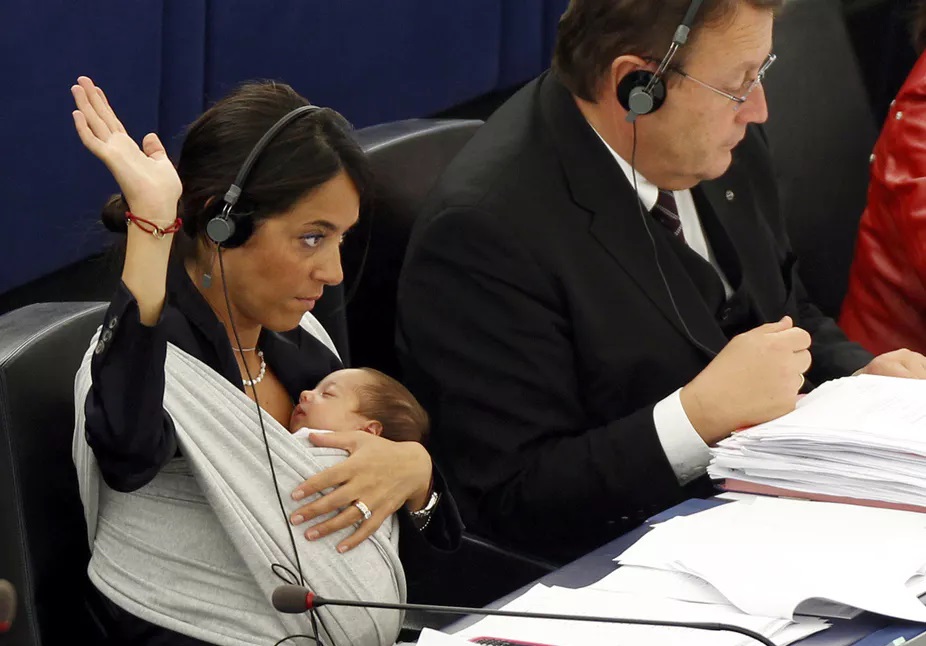While Nigeria’s culture largely celebrates fertility, pregnancy and childbearing, there is currently little institutional investment in early child care, particularly breastfeeding.
Nigeria’s rate of exclusively breastfed babies is only 23.7 percent, according to the 2016/2017 multiple Indicator Cluster Survey by the National Bureau of Statistics (NBS) with technical support from UNICEF.
What this means, according to UNICEF, is that 5.4 million children each year miss out on the nutritional powerhouse that is breastmilk, contributing to the country’s chronic child malnutrition rates.
Currently, over 1,219 Nigerian children die daily from malnutrition, with Nigeria being the country with the second highest malnutrition statistics.
Advertisement
UNICEF says the cost of low breastfeeding rates is high, translating to almost $1billion, factoring in deaths, cost of low cognitive development and low IQ.
Nigeria, UNICEF says, needs to invest institutionally in breastfeeding by enacting “paid family leave and workplace breastfeeding policies, building on the International Labour Organisation’s maternity protection guidelines as a minimum requirement, including provisions for the informal sector”.
What this means is that Nigeria’s law on parental leave needs to be revised. Currently, the country’s law consists of a maternity leave that is a whole month and two weeks short of article 183 of the ILO which stipulates 18 weeks of maternity leave.
Advertisement
This leaves women scrambling to search for adequate childcare as they return to work in an economy hit by recession and which mostly needs a home with two working parents.
Folake Aremu, a teacher in Ibadan, spoke to TheCable of her exclusive breastfeeding experience. She said it was difficult getting a creche close to the school where she works and then leaving the school thrice daily to breast feed.

Aremu was determined to breastfeed. She, however, does not play down the difficulty therein.
“My mother taught me how to breastfeed, my doctor even told me about breastfeeding during the antenatal. So, I was determined to breastfeed my child but it was so hard,” she said.
Advertisement
Aremu said her daughter hardly fell and when she did, it was malaria and she recovered well, adding that: “I continued to breastfeed my child till she was one year and six months and the benefits were enormous.”
Currently, there isn’t much value placed on caregiving in Nigeria.
Pregnancy and childcare cause working women to face discrimination in their offices, especially in private organisations.
Advertisement
“In 2017, my colleague almost got bypassed for a promotion because she dared to take an extra month, added to the three months maternity leave, without pay, to breastfeed her child,” said a woman who spoke anonymously to prevent victimisation.
“The male boss forgot her major contributions to the organisation in that year until the human resource manager, a female, got involved.”
Advertisement
Nigeria’s dismal breastfeeding statistics cost the country $21 billion per year or 4.1 percent of its gross national income.
As the World Bank puts it, every dollar invested in high impact nutrition interventions including breastfeeding “would yield between $4 and $35 in economic returns, making investment in early nutrition one of the best value-for-money development actions”.
Advertisement
Benefits of breastfeeding
Muyibat Yusuf, a stay at home mother of twins, tandem breastfed her twin children exclusively.
“I could only do this because I didn’t work in those six months,” she said. “I only started my cooking business after the twins turned six months,” she said.
Advertisement
She said the benefits of breastfeeding her kids outweighed the discomfort. “They didn’t fall sick the whole time I breastfed them,” Yusuf said.
UNICEF breast feeding fact sheet
Breastmilk contains all the nutrients and fluids a baby needs for the first six months of life. It is the first and best protection a baby has against an array of illness and disease – a critical first vaccine for the baby.
Breastmilk helps to prevent pneumonia and diarrhoea, two of the leading causes of death for children under five. Babies who are breastfed are 14 times less likely to die than those who are not fed breast milk.
Breastfeeding reduces the incidence of death in newborn babies. As newborns account for nearly half of all deaths of children under five; the longer breastfeeding is delayed, the higher the risk of death in the first month of life. Delaying breastfeeding by 2-23 hours after birth increases the risk of dying in the first 28 days of a baby’s life by 40 percent.
Breastfeeding helps in the cognitive development of children, meaning they do better in school, and longer breastfeeding durations are associated with higher scores on intelligence tests.
Add a comment






